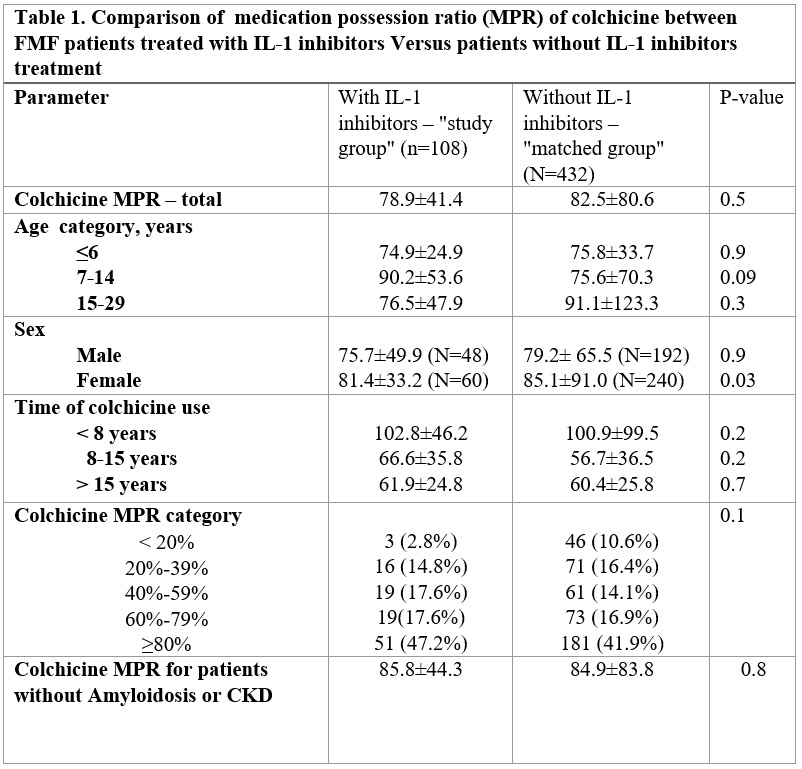Session Information
Session Type: Poster Session A
Session Time: 6:00PM-7:00PM
Background/Purpose: IL-1 inhibitor are approved for familial Mediterranean fever (FMF) patients who are resistant to colchicine. However, it is imperative to continue concomitant treatment with colchicine since it is the only drug proven to prevent secondary amyloidosis. We aimed to investigate the adherence to colchicine among colchicine resistant FMF patients treated with IL-1 inhibitors (crFMF) and compare them to colchicine sensitive FMF patients that were treated merely with colchicine (csFMF).
Methods: The databases of Maccabi Health Services (MHS), a 2.6 million member state-mandated health provider in Israel was searched for patients 5-29y with FMF diagnosis. Medication possession ratio (MPR) was used as main outcome measure. crFMF were matched in a ratio of 1:4 to csFMF patients.
Results: The final cohort included 4526 patients. Among them, 108 crFMF patients, were matched to 432 csFMF patients. The total MPR in each groups was similar (78.9 ±41.4 versus 82.5 ± 80.6, P=0.5). No significant MPR differences between the groups were found for age and for time of colchicine use. However, the adherence to colchicine was insufficient (MPR < 80%) among more than 50% of the patients in both groups.
Conclusion: In contrast to initial concerns, adherence to colchicine in crFMF is similar to csFMF. However, in both groups, adherence to colchicine is poor and education of both caregivers and patients is essential in order to increase adherence.
To cite this abstract in AMA style:
Levinsky Y, tal r, Harel L, Amarilyo G. Colchicine Adherence Among Children and Young Adults with Familial Mediterranean Fever During Treatment with interleukin-1 Inhibitors [abstract]. Arthritis Rheumatol. 2023; 75 (suppl 4). https://acrabstracts.org/abstract/colchicine-adherence-among-children-and-young-adults-with-familial-mediterranean-fever-during-treatment-with-interleukin-1-inhibitors/. Accessed .« Back to 2023 Pediatric Rheumatology Symposium
ACR Meeting Abstracts - https://acrabstracts.org/abstract/colchicine-adherence-among-children-and-young-adults-with-familial-mediterranean-fever-during-treatment-with-interleukin-1-inhibitors/

